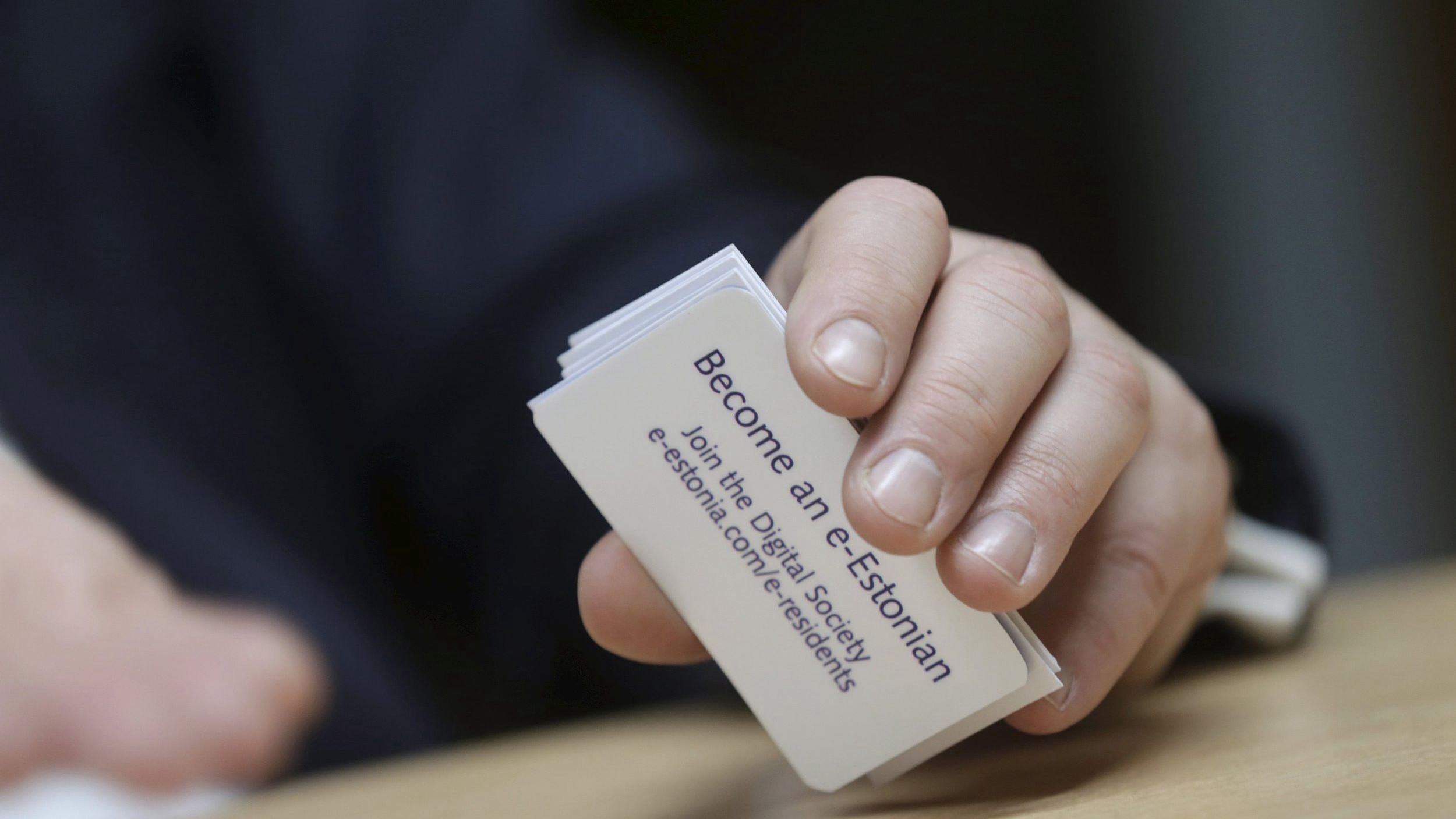Estonia could become the first country to launch its own digital token, taking the plunge with blockchain and cryptocurrencies as major economies around the world eye the technology with increased suspicion.
Cementing its status as one of the world’s most advanced digital nations, Estonia has already established an innovative e-residency scheme for foreign nationals and created entirely paperless bureaucracy based on an “unhackable” digital ID system.
Tallinn announced earlier this year it would establish the world’s first “data embassy” in Luxembourg – a secure facility to back up the entire country’s digital information, highlighting how seriously the country regards cybersecurity.
If any country in the world has the infrastructure in place to launch its own digital token, it’s Estonia.
How would Estonia’s coin work?
Let’s be clear first – what’s being proposed isn’t a coin (like Bitcoin), but a digital token which would not be able to fluctuate in value.
The proposed token has been nicknamed the “estcoin,” and it would work in tandem with the e-residency program.
E-residency was established in 2014, and is open to foreigners who want to set up a business inside the European Union as “e-residents.”

Tallinn, Estonia's capital. /VCG Photo
Tallinn, Estonia's capital. /VCG Photo
There are currently more than 27,000 e-residents, who can run businesses in Estonia without even entering the country.
The scheme promises transparency, location-independence and low-cost access to entrepreneurship inside the EU’s single market – potentially making it an attractive post-Brexit destination for British business.
Kaspar Korjus is the managing director of the e-residency scheme, and is also the person behind the proposal for estcoin. In an in-depth blog post published on Wednesday, Korjus said estcoin would be made available to e-residents in three possible formats:
- The community estcoin. A reward for promoting or improving the e-residency scheme. These could be given to e-residents who hold regulated ICOs (initial coin offerings) within the e-residency system.
- The identity estcoin. A form of digital signature used to sign smart contracts or access online services. This coin would be linked to one individual’s identity, and therefore would not be exchangeable.
- The euro estcoin. This would see the digital token pegged to the euro, and used to carry out instant, free transactions through blockchain technology.

Could estcoin act as a revolutionary digital signature? /VCG Photo
Could estcoin act as a revolutionary digital signature? /VCG Photo
Korjus insists that the third option would not be an alternative currency – under Eurozone law no state can introduce a separate currency to the euro – but that it would “combine some of the decentralized advantages of crypto with the stability and trust of fiat currency.”
Sounds interesting, but can it work?
Pegging estcoin to the euro would be seen as the “holy grail” for some cryptocurrency supporters, and as absolutely impossible by naysayers.
European Central Bank President Mario Draghi said “no member state can introduce its own currency; the currency of the Eurozone is the euro” in response to Korjus first floating the idea of estcoin in September.
If one estcoin could always equal one euro, the so-called “holy grail” of establishing a cryptocurrency without risk of wild volatility would become a reality. However, getting the European Central Bank and other Eurozone member states on board with the idea would likely be impossible.
Are other countries working on similar projects?
The rise of cryptocurrencies and the potential of blockchain mean other major economies are looking at adopting their own e-coins, despite apprehension over the rise of Bitcoin and lack of regulation on ICOs.
Major Japanese banks have announced that they are working together on the J Coin, a digital currency pegged to the yen in time for the 2020 Tokyo Olympics.
The country’s central bank and financial regulator have both backed the project, which is being seen as a bid to bolster Japan’s fintech sector against the rise of Chinese mobile payment platforms like Alipay and Wechat Pay.
China itself is researching the benefits a state-backed digital currency could bring to the country. The Chinese central bank’s head of research Yao Qian told a forum in Beijing in November that “the development of the digital economy needs central bank-issued electronic currency more than ever.”
Yao described digital legal tender as the “jewel in the crown of fintech,” in comments that mirrored similar positivity from Zhou Xiaochuan – the chief of the People’s Bank of China – earlier this year.





